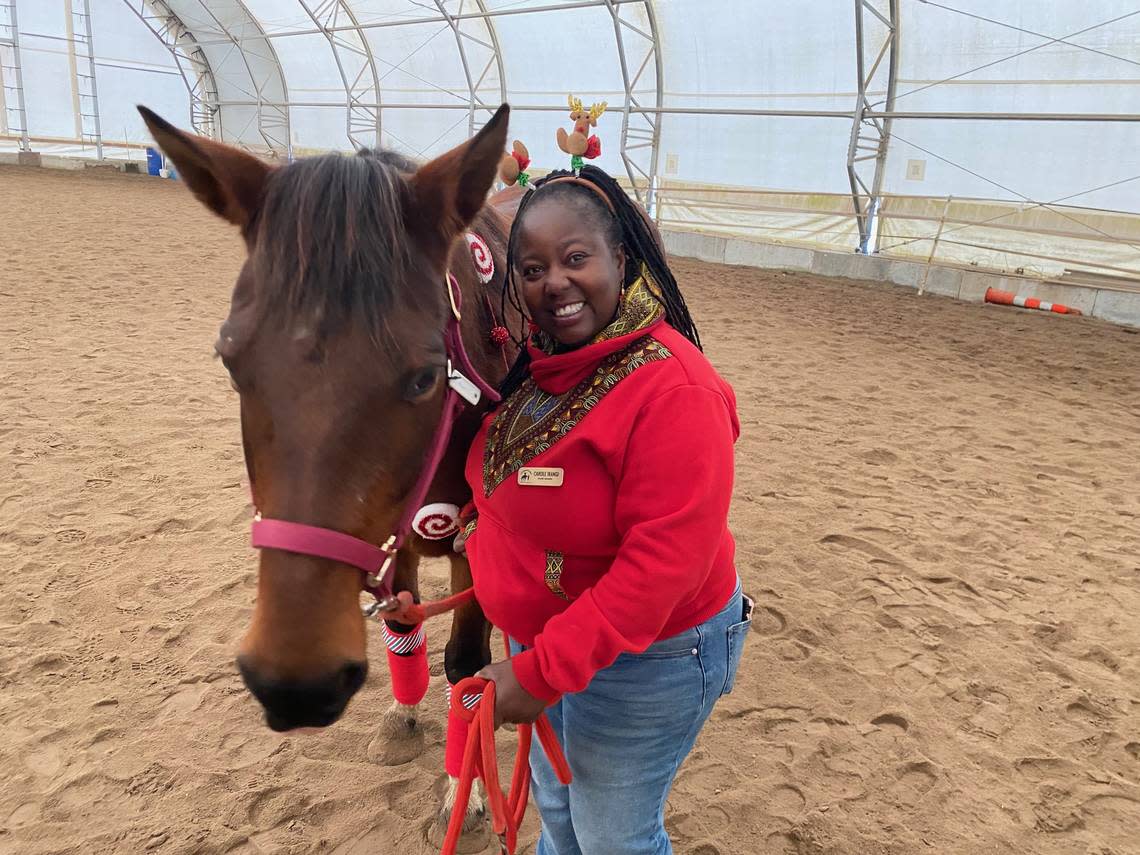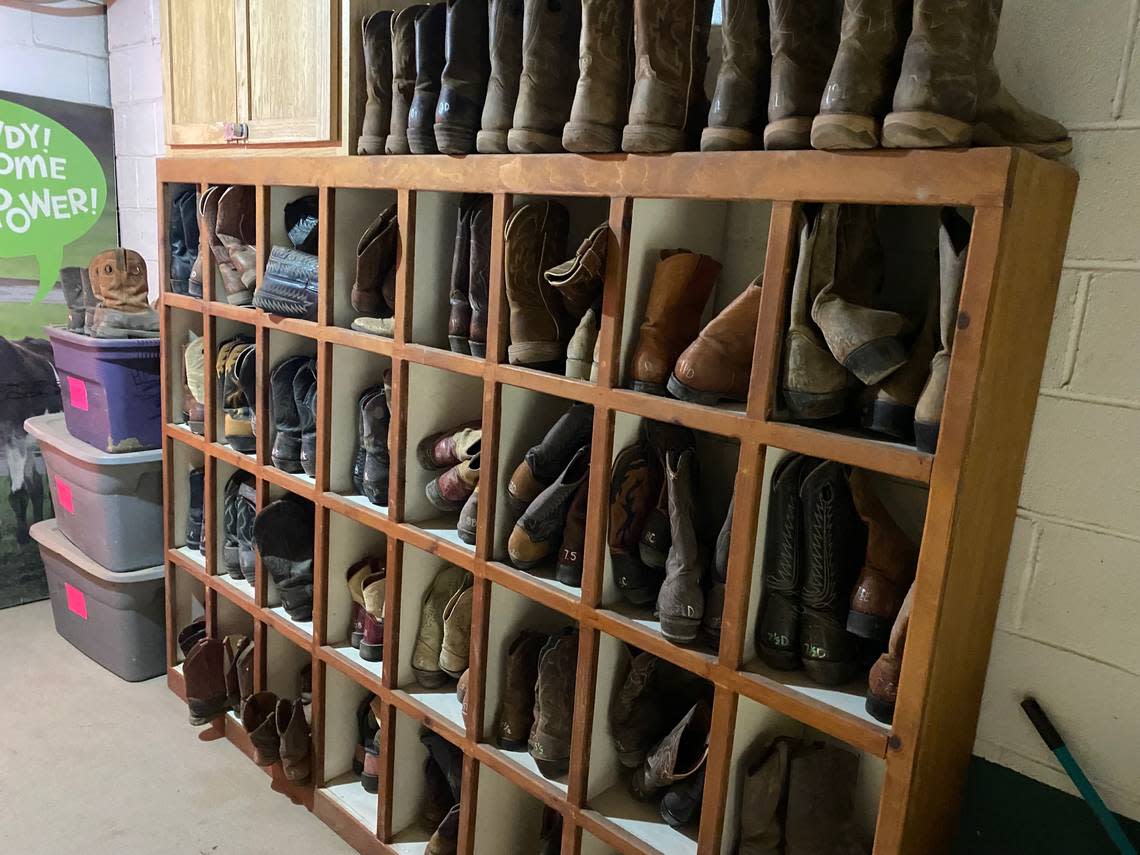This Lee’s Summit nonprofit uses horse power to help young people heal from trauma
For more than two decades, HorsePower Experiential Learning has brought together horses, volunteers and at-risk youth to help children and adolescents develop life-coping skills.
The nonprofit, located at Rising Star Ranch in western Lee’s Summit, is among the longest running therapeutic equine programs in the Kansas City area, says Shannon Gammon, program director and instructor.
Horses are uniquely suited to help the program’s approximately 65 students address emotional issues such as post-traumatic stress disorder, oppositional defiant disorder, reactive attachment disorder, attention-deficit hyperactivity disorder and mood disorder, Gammon said.
Through HorsePower, students ages 6 to 18 participate in weekly 90-minute sessions for seven weeks. Each student is paired with a mentor who encourages the young participant’s connection with the horse.
“Equine Assisted Learning and Therapy has proven to be effective for otherwise treatment-resistant patients,” she said. “Horses are prey animals, which provides trauma victims the chance to interact with beings also experiencing hyper-vigilance.”

As prey animals, horses interact with humans as they react and give immediate biofeedback regarding the rider’s internal state, Gammon said. Studies have also shown that horses process and hold onto trauma in the same way as humans.
“They will adapt for survival and protection, like our students who have dealt with physical, sexual, emotional abuse and more,” she said. “It takes honesty and transparency to have a healthy relationship with a horse. This is what HorsePower works to facilitate during the seven weeks.”
HorsePower has more than 160 volunteers and just one paid employee: Julie Jensen, the program’s new executive director.
The numerous volunteers are essential to the program’s success and include an equine care team and a fundraising/hospitality team. Each student is part of a 10-legged team, Gammon said. It’s made up of the student’s volunteer mentor, the volunteer horse handler, the student and the horse. Sessions are limited to around five students with an instructor leading the class.
Each group class incorporates activities that promote development and growth, such as basic horsemanship paired with a coping/social skill. Weekly lessons include horse safety, grooming, hoof picking, how to lead the horses, haltering and mounting. The horse-focused skills are partnered with life skills such as respect and empathy.
Though it’s not a riding program, some students do learn how to ride on their own, Gammon said.
In addition to the initial group classes, a second level is offered to students who are able to continue in the program. One-on-one equine therapy sessions are also available.
Renee Roe, a HorsePower volunteer since the program’s launch in 2001, said she has always loved horses. Beyond the opportunity to be around the equine therapy animals, Roe said watching the students gain confidence and skills is especially rewarding.

“When you see the kids at the last week of the program, just seeing the joy on their face is such a big payoff,” Roe said.
Jensen, the program’s new executive director, began volunteering in early 2023. A retired Lee’s Summit R-7 School District educator, Jensen said she joined for a simple reason.
“I just needed something to fill my heart.”
Within a non-threatening environment with the horses and volunteers, the students make great strides.
“Sometimes the kids are silly at first,” Jensen said, “but once they get with that horse, they focus.”
Since its formation, HorsePower has served more than 900 students. Currently the organization includes students from Cornerstones of Care, and the nonprofit will soon be serving students from Crittenton. In addition, children are referred from caseworkers, therapists and organizations such as CASA and the Missouri Department of Social Services.
HorsePower owns eight horses with a goal of eventually reaching 10 to 12 four-legged therapy animals.
“Some have been donated,” said Gammon, who donated a horse to the program in 2004. “We currently have a pretty senior herd. Ideally, HorsePower horses are retired from the program after five to eight years, as studies show that the mental stress of behavior-based programs like ours can really put a strain on the horses’ health.”
Each HorsePower animal is carefully evaluated by equine specialists to determine its suitability for the program.
“We want the horse to be engaged and have a personality and not be dull,” Gammon said. “Because we are a volunteer-run organization, the horses need to be easy keepers and not have special diet or medical needs and be able to be on pasture/round bales year round.”
The charitable organization is funded through donations, grants, corporate sponsorships and fundraisers. Its annual Boot Scootin’ for HorsePower dinner/auction is scheduled for April 26.
HorsePower is currently in the midst of a capital campaign to raise funds to purchase, renovate and maintain a ranch within the Lee’s Summit area. This would provide the organization — which has boarded its horses and leased space at five locations over the years — with a more permanent home.
Go here to learn more about HorsePower.
